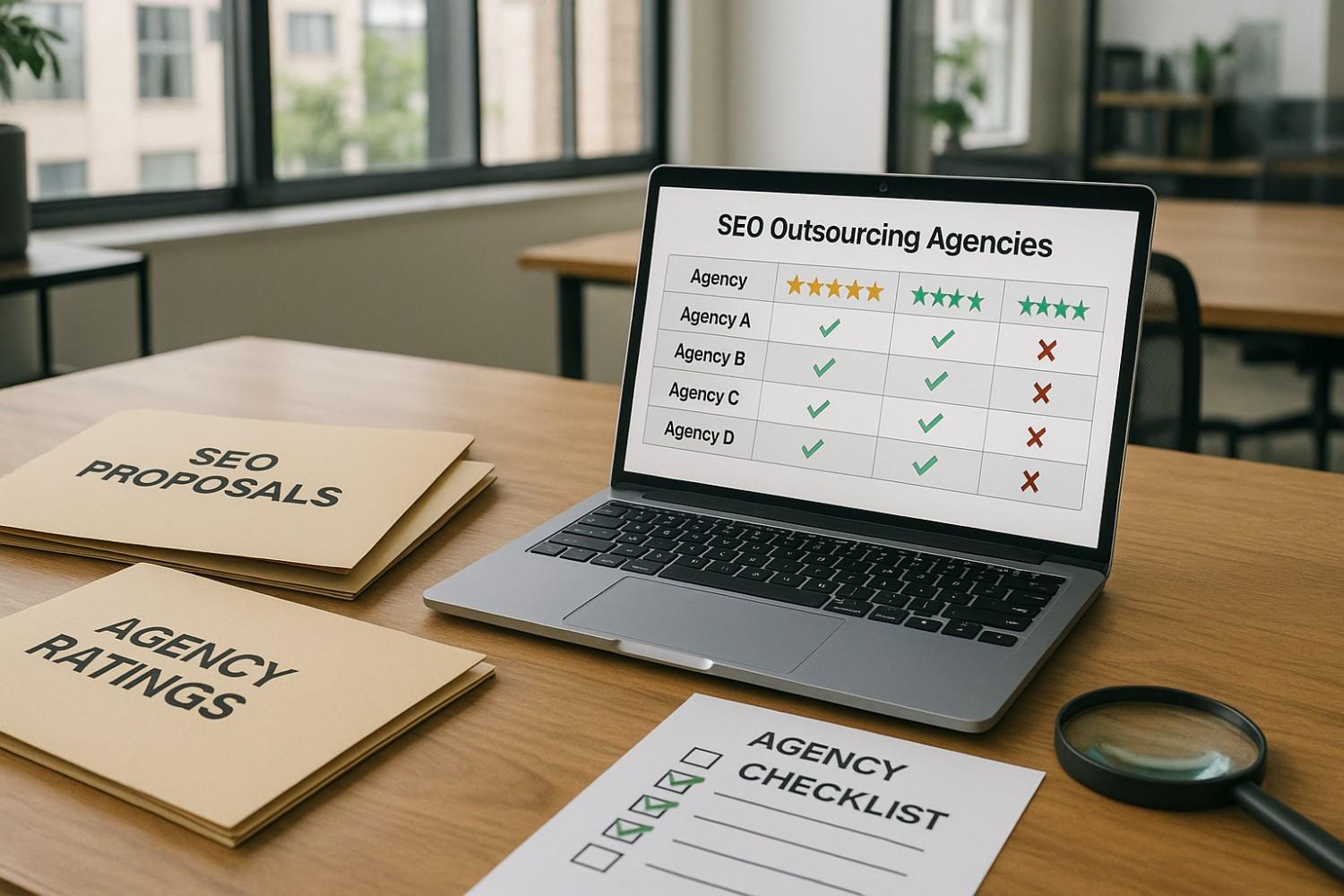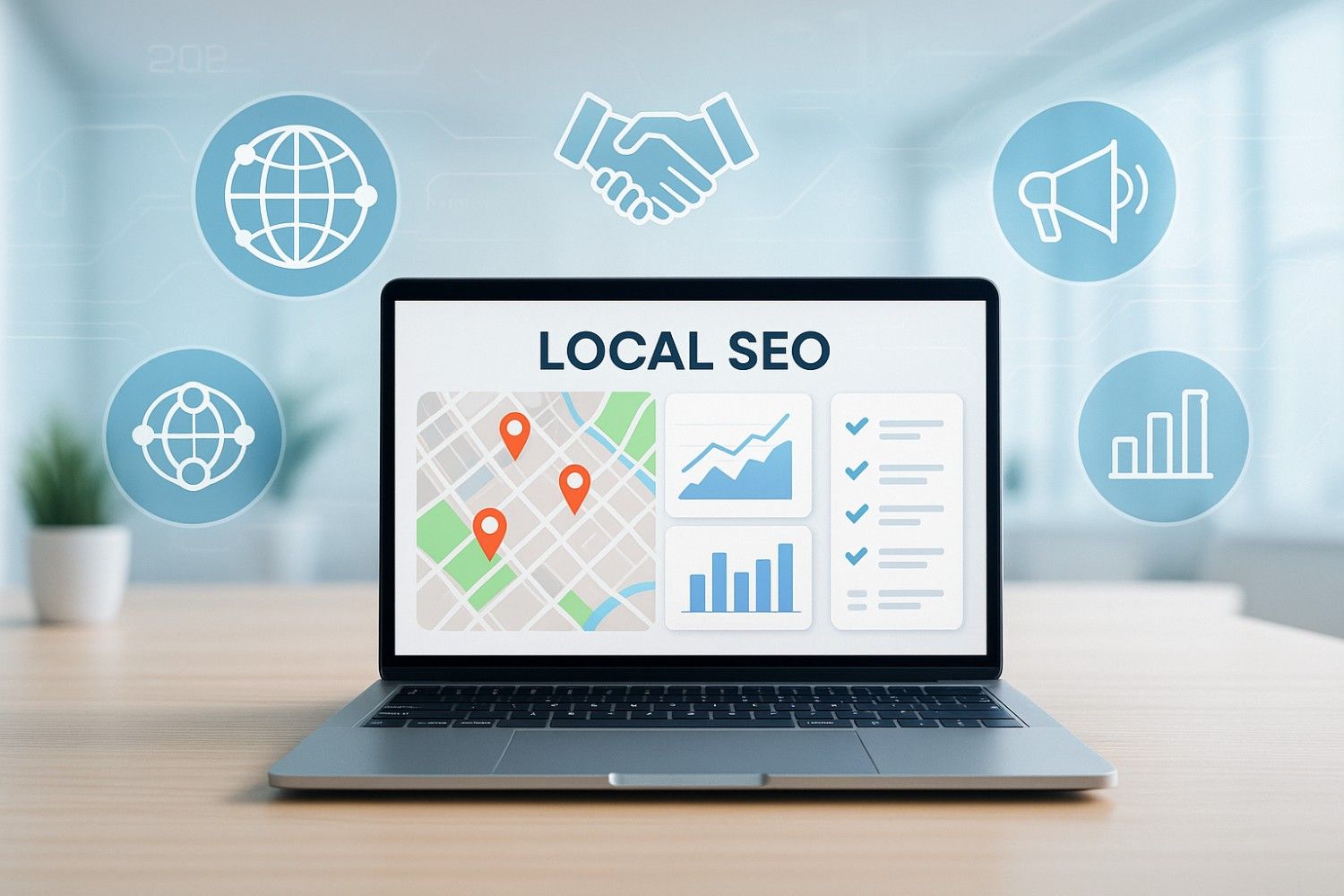Search Engine Optimization (SEO) is a game-changer for startups, helping you reach the right audience and drive organic growth. But mastering SEO can be tough, especially when your team is already stretched thin. That’s where outsourcing comes in.
By hiring an SEO agency, you save time and gain the expertise needed to rank higher in search results. However, picking the right agency is crucial. The wrong choice can waste resources, while the right one can turbocharge your growth.
This guide will walk you through a step-by-step process to select an SEO agency that perfectly aligns with your startup’s needs.
Why SEO Matters for Startups
Before we jump into choosing the right agency, it’s crucial to understand why SEO is so vital.
Startups often have tight budgets, which means spending your marketing dollars wisely is essential. Unlike paid advertising, which needs continual investment, SEO offers long-term benefits. A well-executed SEO strategy ensures:
Better visibility: When your website ranks higher in search engine results, more potential customers can discover your business. This increased exposure helps drive traffic and ensures that your brand reaches a wider audience.
Credibility and trust: People are more likely to trust organic search results over paid ads because they perceive them as more reliable and unbiased. A high-ranking website also enhances your business’s reputation, making you a trusted authority in your industry.
Cost-effectiveness: Unlike paid ads, which require ongoing investment, SEO provides a steady stream of organic traffic with minimal recurring costs. By focusing on optimizing your site, you can enjoy long-term benefits without straining your marketing budget.
If you’re serious about scaling, SEO isn’t just an optional add-on; it’s a must-have.
Understanding Your SEO Needs and Goals
Before reaching out to any agency, take a step back and assess your own needs.
Ask yourself:
What are my primary business goals? Do I want more traffic to my website, higher conversions on key pages, or greater overall brand awareness across digital platforms? Defining these goals will help narrow down your priorities when it comes to SEO.
Who is my target audience? What are their pain points, and how can I address them through SEO-driven content? Which search queries or keywords would I ideally like to rank for? Understanding your audience’s behavior and intent is crucial for effective SEO campaigns.
Do I already have some SEO resources in place, or am I starting from scratch? For example, do I have optimized content, existing backlinks, or a solid technical foundation, or do I need a full-scale SEO strategy built from the ground up?
For instance, if you’re a SaaS startup aiming to rank for “best project management tools” on Google, you’ll need an agency with experience in competitive keyword niches, someone who understands how to create content that drives traffic while also converting readers into customers. Clear goals not only guide your SEO strategy but also help you choose an agency with the right expertise, whether that’s technical SEO, content creation, link building, or all of the above. Taking the time to define these factors upfront will set you up for success in the long run.
Pro tip: Be specific with your goals. Instead of saying, “We want more traffic,” aim for measurable objectives like, “Increase organic traffic by 30% in six months.”
Key Factors to Consider When Choosing an SEO Agency
Selecting the right SEO outsourcing agency is a decision that can significantly impact your business growth, so it requires careful thought and thorough evaluation. To help you make an informed choice, here are the critical factors to consider before partnering with an agency.
1. Industry and Niche Experience
Does the agency have hands-on experience working with businesses in your industry? SEO strategies can differ greatly between industries, as each has its unique audience, competitive landscape, and search trends. For instance, an e-commerce business will need a different approach from a SaaS startup. Finding an agency that not only understands SEO but also has a proven track record in your niche is essential for achieving meaningful results.
2. Transparency in Deliverables
A reliable SEO agency should provide a clear and concrete breakdown of what they plan to do for your business. This includes outlining tasks such as keyword research, technical audits, backlinking strategies, and content development. Always ask for examples of the reports they provide, including how they measure progress and adjust their strategies over time. Transparency ensures you know exactly what you’re paying for and helps you build trust in the partnership.
3. Customized Strategies
Not all businesses have the same goals, and your SEO strategy should reflect your specific objectives. Beware of agencies that push cookie-cutter solutions, as these often fail to deliver targeted results. The best SEO agencies take the time to understand your business, its goals, and your audience, crafting personalized strategies that align with your objectives whether it’s driving organic traffic, increasing conversions, or improving local search rankings.
4. Performance Metrics
How does the agency measure success? Strong KPIs (Key Performance Indicators) are essential for tracking the effectiveness of their strategies. Look for agencies that focus on metrics like organic search traffic, domain authority improvements, keyword rankings, and conversions or leads generated from organic traffic. These metrics should be measurable and tied to your business goals, so you can assess the ROI of their efforts and ensure you’re getting value for your investment.
5. Credibility and Reviews
An agency’s credibility can tell you a lot about the quality of their services. Look beyond their claims by checking online reviews, testimonials, and case studies. Platforms like Clutch, Trustpilot, or even Google reviews can provide unbiased feedback from previous clients. Don’t hesitate to ask for references or examples of past projects to get a better understanding of their expertise, work ethic, and ability to deliver results.
By considering these factors, you’ll be better equipped to choose an SEO outsourcing agency that aligns with your goals, provides value, and helps you achieve long-term success in the highly competitive digital world. Take your time, ask the right questions, and make a decision that positions your business for sustainable growth.
Ready to Outsource Your SEO the Right Way?
Tired of guesswork and unreliable freelancers? Partner with experts who understand your goals. Our outsourced SEO services are built around transparency, performance, and long-term growth.
Red Flags to Watch Out For
While some agencies can deliver exceptional results, others may compromise your website’s integrity or waste your budget altogether. Keep an eye out for these warning signs.
Too-Good-to-Be-True Promises
Be cautious of agencies that promise #1 rankings on Google overnight. SEO is a long-term strategy that requires consistent effort, quality content, and patience. Any agency making such guarantees may be using risky black-hat tactics, such as keyword stuffing or spammy backlinks, which can lead to penalties from search engines and harm your website’s reputation.
Lack of Transparency
Transparency is key when working with an SEO agency. If they’re hesitant to explain their strategies, provide regular updates, or detail the work they’ll be performing, it’s a major red flag. A reputable agency should be open about their methods and willing to educate you on how they’ll help improve your site’s performance. A lack of transparency could indicate they’re cutting corners or using unethical practices.
Over-Reliance on Paid Ads
Some agencies promote themselves as SEO experts but rely heavily on paid ad traffic to deliver results. While paid ads can complement an SEO strategy, they don’t address core SEO goals like organic search visibility, improving rankings, or growing long-term, sustainable traffic. Make sure the agency prioritizes organic strategies over paid campaigns if SEO is your primary focus.
No Long-Term Plan
Effective SEO isn’t about quick wins or short-term gains. Agencies that focus solely on short-term hacks may see fast results, but these are rarely sustainable. Without a long-term plan that includes quality content, technical optimization, and regular performance monitoring, your site is unlikely to achieve lasting success. Look for an agency that’s committed to building a strategy with your long-term goals in mind.
Questions to Ask Potential Agencies
When you’ve shortlisted potential candidates, it’s time to grill them with the right questions. These will help you evaluate their expertise and determine whether they’re the right fit for your business.
About Their Experience
“Can you share examples of startups you’ve helped, and what results you achieved?”
Understanding their past work can give you a clearer picture of their expertise and the kind of results they can deliver. Look for specific success stories or case studies that demonstrate their ability to drive measurable outcomes.
“Do you have experience working in our niche?”
Niche-specific experience can be a game-changer, as it ensures they understand your industry’s unique challenges, competitors, and audience behavior.
About Their Approach
“What’s your process for developing an SEO strategy?”
A solid SEO strategy often involves a mix of keyword research, competitor analysis, technical audits, and content optimization. Ask about their step-by-step process to gauge how thorough and tailored their approach will be for your business.
“Will you handle technical SEO, content creation, or both?”
SEO has many layers it’s important to clarify whether they’ll cover just the technical aspects, focus on content creation, or provide a holistic solution that includes both.
About Tracking and Reporting
“What KPIs will you track, and how often will we receive reports?”
Key performance indicators like organic traffic, rankings, and conversion rates are crucial for measuring progress. Ask how they plan to track these metrics and how often they’ll share updates with you.
“Are you open to providing monthly updates with insights on progress and challenges?”
Regular updates are essential for transparency. Ensure they’re willing to not only report on progress but also discuss challenges and adapt strategies as needed.
Additional Questions
“What tools and platforms do you use to manage campaigns?”
From analytics platforms to keyword research tools, their choice of technology can reveal a lot about how effectively they manage campaigns and analyze data.
“Can you share case studies or references from past clients?”
Requesting case studies or client references will help you verify their claims and gain insights into their work ethic, reliability, and impact. It’s always a good idea to hear from businesses they’ve worked with before.
Make SEO Work for Your Startup
Selecting the right SEO outsourcing agency is one of the most impactful decisions you’ll make for your startup. Take the time to assess your needs, research agency options thoroughly, and don’t hesitate to ask tough questions.
Remember, SEO isn’t a sprint, but a marathon. With the right partner by your side, you can create a strong foundation that drives sustainable growth.
FAQ’S
1. How do I choose the best SEO outsourcing agency for my startup?
Look for agencies with proven results, industry experience, transparent reporting, and services that match your goals.
2. What questions should I ask an SEO agency before hiring them?
Ask about their SEO strategies, past client success stories, reporting frequency, pricing, and how they handle algorithm updates.
3. How much does it cost to outsource SEO for a startup?
Costs vary widely, but expect to pay anywhere from $500 to $5000+ per month depending on scope, agency reputation, and services.
4. How long does it take to see results from an outsourced SEO agency?
Typically, SEO results take 3 to 6 months to show, depending on competition, website health, and strategy effectiveness.
5. Is it better to hire a freelancer or an SEO agency for startups?
Agencies usually provide broader expertise and resources; freelancers can be cost-effective but may lack full-service capabilities.




